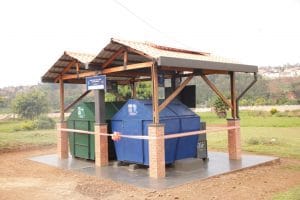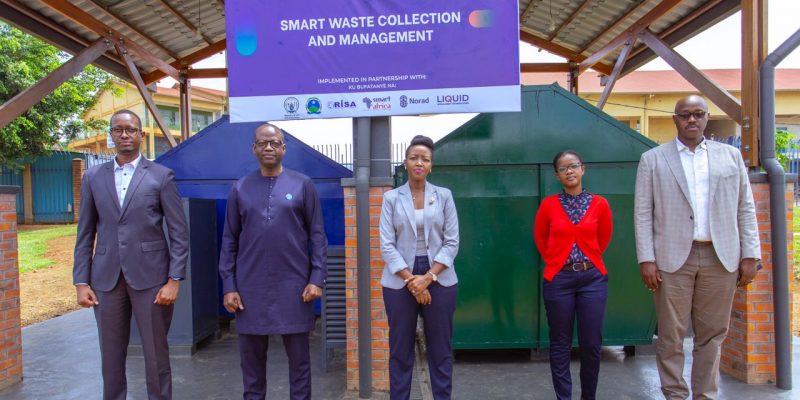In Kigali, the authorities are putting technology at the service of solid waste management. Since November 2nd, 2021, the old garbage bins in the Rwandan capital have been replaced by smart garbage cans equipped with sensors. This equipment allows for real-time monitoring of waste filling levels.
The sanitation pilot project was launched by the Rwandan Ministry of Information and Communication Technology (ICT) and Innovation, and the Rwanda Information Society Authority (Risa), in partnership with Smart Africa and the Norwegian Development Agency (NORAD). With the deployment of smart garbage cans in the city of Kigali, the Rwandan government hopes to reduce the need for waste collectors to go out into the field. Specifically, sensors alert collectors in real time to the levels of filling of the garbage bins. The system also works with closed-circuit cameras and a geographic information system (GIS) for security of the waste collection facilities.
Umujyi wa Kigali washyikirijwe uburyo bwo gucunga imyanda hakoreshenjwe ikorabuhanga na @rwandaict ku bufatanye na @RealSmartAfrica kugira ngo ukomeze ukurikirane ibikorwa by'uyu mushinga ukiri mu igerageza (Pilot phase). pic.twitter.com/sVQeys7p50
— City of Kigali (@CityofKigali) November 2, 2021
Initially, the smart garbage cans were deployed in the public markets of Kimironko, Mulindi, Zinia, Mutangana and in the model village of Karama. According to Lacina Koné, the director general of the Smart Africa Secretariat, this stage of the project cost $100,000, more than 101.5 million Rwandan francs.
Read Also –
The next challenge will be to extend the system to other markets and public spaces in Kigali, as well as to households. The project also raises awareness of manual sorting and sustainable waste disposal. “The garbage cans installed have different colors according to the type of waste, with green ones for biodegradable products, blue ones for recyclable products such as plastic and paper, and gray ones for electronic products,” explains Paula Ingabire, Rwanda’s Minister of ICT and Innovation. Once collected, this waste will be transferred to the Nduba landfill in the Gasabo district where it will be treated. This is currently the only solid waste landfill in the Rwandan capital Kigali.

Smart bins equipped with sensors in the city of Kigali©City of Kigali
With this system, the Rwandan government and its partners hope to sustainably improve waste management in Kigali. According to Scientific Research Publishing (SCIRP), the Rwandan city generates about 450 tons of waste per day, of which 300 to 350 tons are currently poorly managed.
Inès Magoum







You must be logged in to post a comment.